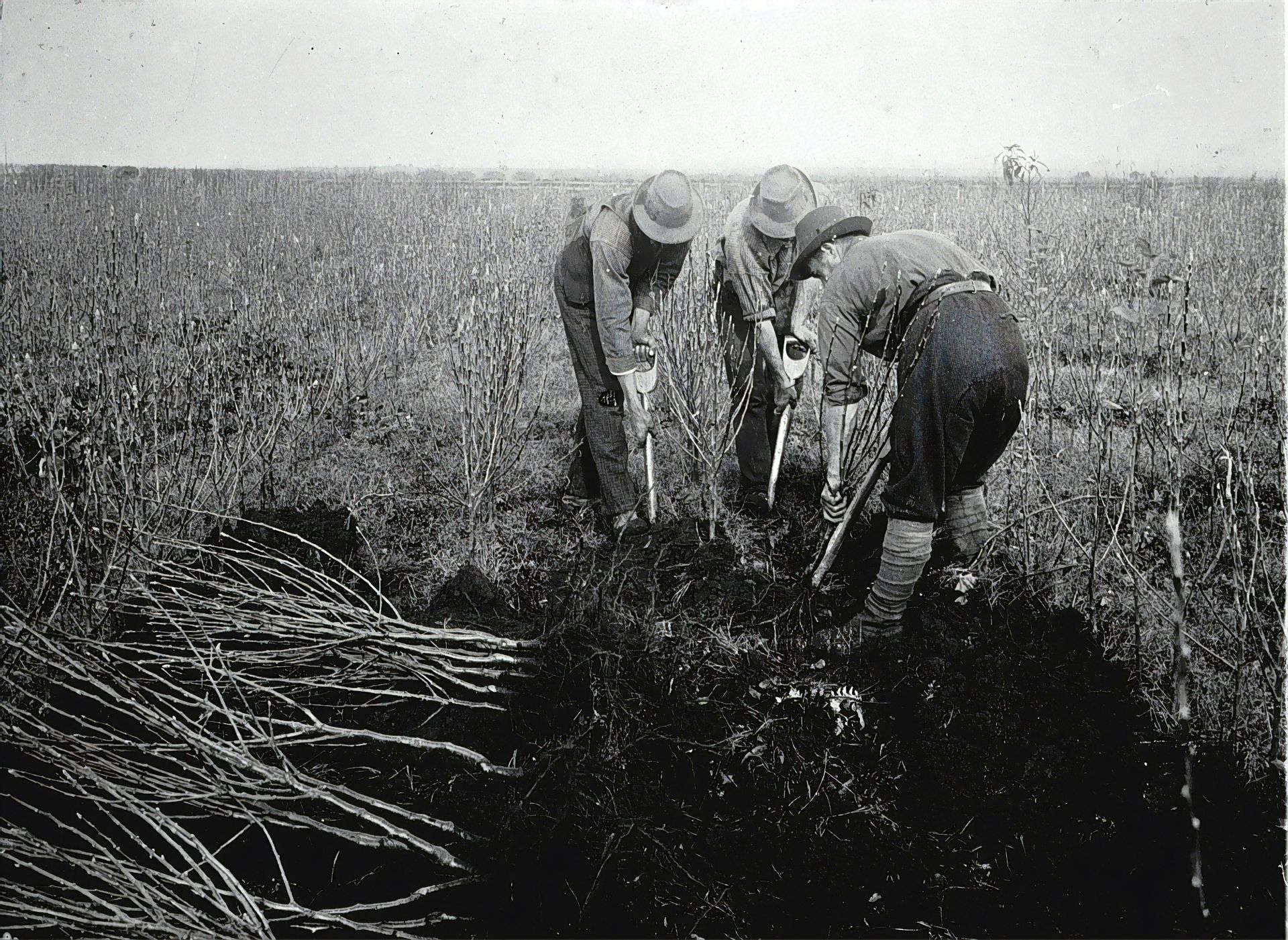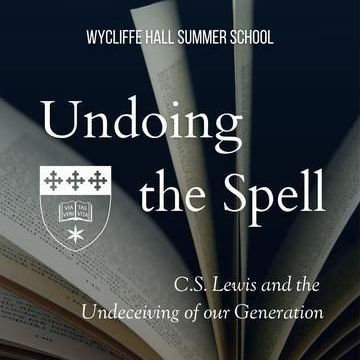Who am I? Bonhoeffer & the Lord's Prayer: A Reflection
What has God been teaching me in this six month break?
The first thing I've been reminded of is this: vocation has nothing to do with my value
A good few years ago, when I was a newly ordained priest, I happened to be at the diocesan office for a meeting with the Bishop. It was there that I had a realisation: “Is this it?”
In the moment I asked myself that question, God revealed something to me. Namely that I had subconsciously started to lean on my vocation for my identity. I was not doubting that God has called me to me ordained ministry. He’d made that crystal clear: out of the blue (and way outside my desires), God had called me. It had taken years to get there, but on that particular day in the diocesan office I realised that this vocation was finally manifest. And not only was that the case, but I had loaded onto it my sense of who I was and my value. Something it was never designed to bear.
Yet how often we try to do just that very thing! It seems to me that Genesis 3 is clear that this kind of mistake is part of the human post-Eden condition. Consider the three ways in which sin’s entrance into the world disrupts and disorders our lives. It disfigures:
- Our relationship with the created world (“I will put enmity between you [the serpent] and the woman” in 3:15 and “cursed is the ground because of you [Adam]” in 3:17)
- Our relationship with others (God says to the woman: “I will make your pangs in childbirth exceedingly great… your desire shall be for your husband yet he shall rule over you” in 3:16)
- Our relationship with work and productivity (God says to the man: “In toil you shall eat of it all the days of your life; thorns and thistles it shall bring forth for you… by the sweat of your face you shall eat bread” in 3:17-19)
It is part and parcel of the brokenness of the whole cosmos that our relationship with work is out-of-whack. It is hard, it is painful, it goes wrong and we often use it—like Adam & Eve used fig leaves—to cover our vulnerabilities, our nakedness and our shame. We can make it our identity, that which makes us confident and secure and gives us a sense of power and prestige. "I am a successful doctor/engineer/nurse/priest/lawyer. If this is who I am, then I must be okay!"
Gratefully I’ve come a long way since my ordination. But I’ll confess, stepping out of work for 6 months isn’t the straightforward breeze I fantasized it might be (though I am very grateful for the break). I didn’t magically become a kid again enjoying the boredom and freedom of summer break, free of responsibility or burden. There are bills to be paid, cooking, cleaning, dogs to be walked, and problems to be solved (specifically injured dogs, bust hard drives and expensive car repairs...). But more than that, stepping out of the employment stratosphere has brought up some questions.
Who am I when I’m not “producing”? Contributing or actively giving back to society? When I’m not preaching or pastoring or planning a worship service?
Who am I when the busyness is dialed back and I start seeing why I like to keep so busy in the first place?
***
Learning from those who came before: the wisdom of Bonhoeffer
Dietrich Bonhoeffer was a Lutheran pastor and theologian during the Second World War. He spent the last two years of his life (aged 37-39) in prison. He wrote many letters and reflections and he built some relationships in prison and offered some pastoral advice and care. But it was not an easy time, not least because of the inevitability that he would not get out of prison alive. Bonhoeffer wrote a poem, Who am I?, that explores how he was outwardly perceived by his prison-mates versus the fears he felt on the inside. Which one tells him of his identity?
Am I really then what others say of me?
Or am I only what I know of myself?
Bonhoeffer tells of how he was positively seen by others as confident, faithful and contented. “I come out of my cell… Like a lord from his palace.” Those outside tell him he has value. He is doing well. He is a positive example. Yet Bonhoeffer’s insides tell a different story. “Tired and empty at praying, at thinking, at doing, Drained and ready to say goodbye to it all.” His insides tell a story of a fearful, exhausted man ready for it all to be over.
Am I one person today and another tomorrow?
Am I both at once? In front of others, a hypocrite,
And to myself a contemptible, fretting weakling?
Or is something still in me like a battered army,
running in disorder from a victory already achieved?
Who am I? These lonely questions mock me.
Whoever I am, You know me, I am yours, O God.
The poem concludes with the reassurance that whatever Bonhoeffer is – whoever he is – he is God’s. Nothing else will get him an answer that satisfies. The external world of affirmation and esteem from others. The internal world of our insecurities and fears. Only in God, only in knowing we belong to God, will we begin to find an answer that gives any real satisfaction.
***
Breaking the cycle with the Lord’s Prayer
In my experience, learning this lesson – that I am God’s – takes active and applied effort over the whole course of one's life. I need practices that help me cultivate habits of trust and cast aside old habits of fear. There are a few seasons of my life it has flowed easily, but many it has not. And whatever the cause, here’s one way I have found that to pray and actively shift my focus to finding my identity in God:
Give us today our daily bread
Forgive us our sins as we forgive those who sin against us.
How do these two petitions from the Lord's Prayer help me with my identity? Good question!
There’s a great saying from the recovery community: “Stop going to a hardware store to buy milk!” Stop trying to meet your needs in the wrong places and then wonder why you're so dissatisfied. Trying again won’t make success any more likely. The two lines above from the Lord’s Prayer offer a way to step out of the hardware store and a way to find spiritual milk where such milk can only be found.
In our sinful human nature, we do the following. We have needs and we try to meet these needs in all kinds of ways that will never work or bring lasting peace and contentment. Maybe I use my profession to get my value and self-worth, but that will only last for a while (or I’ll end up sacrificing myself on the altar of success). Perhaps you find your value in the strength of your relationship with your spouse or your children. It meets your need to matter or be seen or heard or understood. But when we misplace or get out of order the things God has created (i.e. work, family, relationship etc) we end up in idolatry, hurting ourselves and others. We’ll react to others negatively when they become unable to meet the needs we’ve somehow expected them to satisfy. We might feel hurt, resentful, unappreciated, even angry. And more to the point, we completely forget to factor God into the equation. The God of all creation, who has conquered sin and death, who is almighty, all-loving and all-powerful—that same God!—slips down our priority list and out of sight.
But with the Lord’s Prayer, I am given words to pray that help a divine reordering take place. I am God's so I trust my needs to Him. I am God's so I let go of the patterns of expectation and resentment that seek other things or people to satisfy me. It gives me a way through which I can step out of my chaotic and idolatrous thinking:
Give us today our daily bread becomes a petition and a reminder that God is the One who meets my needs both practical and spiritual. Where I can name my needs before Him and trust He will provide: Lord, I am worried about paying my bills this month. Show me how to trust that you will provide and see me through this tough time. Lord, I fear I don’t matter. Help me know my value is in you. Lord, I ache with loneliness and feeling unloved. Meet that deep need and show me I am never alone. Give me to today my daily bread.
Forgive us our sins as we forgive those who sin against us becomes a way for me to step out of the cycle and shame and blame that I’ve participated in: God, I let go of resentments where people haven’t provided what I’d expected them to provide: God, forgive me where I have wronged others and made demands from them that they could never meet. Forgive me where I have taken things you have given me and trusted in them rather than you. Forgive me my sins as I forgive those who sin against me.
My identity is to be in God, not in others' view of me or my own fears about myself. So I trust my needs to Him. I put off old ways that put my identity in other places.
***
In Conclusion...
In this six month season of rest and preparation, I am reminded of this: I am God’s. I belong to God.
The reason I confuse my identity at times is because I am trusting in something other than God to satisfy, to meet my needs. It might be for me vocation or work, but it could be anything - you can fill in your own equivalent. In praying the Lord’s Prayer, in actively believing Bonhoeffer’s words “Whoever I am, You know me, I am yours, O God,” I ground myself in God, I renew my trust in Him and – happily – am freed to do the things God is calling me to do without burdening them with things they were never made to bear.
God, I am willing to surrender my fears
and to place my will and my life
in Your care one day at a time.
Grant me the wisdom to know the difference
between the things I can and cannot change.
Help me to remember that I can ask for help.
I am not alone.
Amen.



